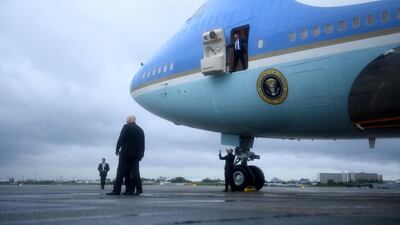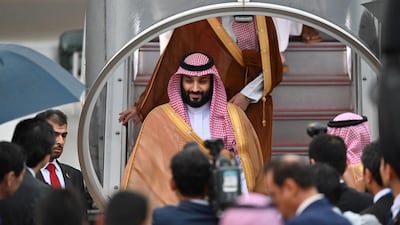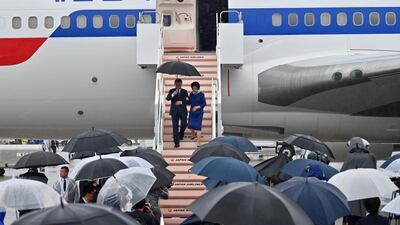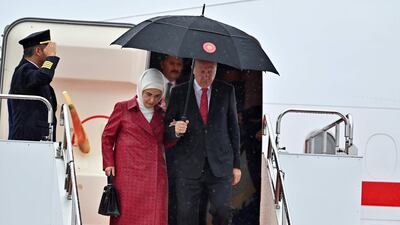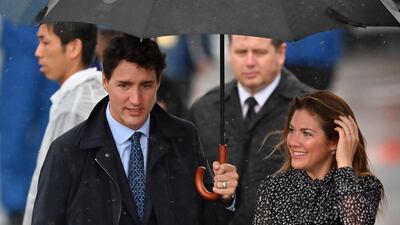Iran will be high on the agenda when world powers meet this weekend at the G20 summit in Japan, as Saudi Arabia seeks support against Tehran's regional aggression.
Tariff wars will also be a major point of discussion at the meeting, but many nations are worried about the risk of regional escalation between the US and Iran and disruption to the oil market.
The tariff wars and US President Donald Trump's approach to diplomacy with Iran have contributed to divisions among the Group of 20 industrialised nations.
Europe is keen to assuage Tehran to keep the 2015 nuclear deal alive, and China and Russia have largely supported Tehran in the standoff.
But disruption to oil supplies through the Strait of Hormuz could hit China hard and as the G20 starts on Saturday there will be a meeting between Russian President Vladimir Putin and Saudi Crown Prince Mohammed bin Salman, who is leading the Saudi delegation.
This month, Prince Mohammed laid out Saudi foreign policy objectives largely in terms of engaging with international powers to contain Iran, which had taken advantage of the nuclear deal to mount violent expansion in the Middle East using militia proxies.
The attacks on interests of oil producers in the Arabian Peninsula multiplied in the past two months.
Four vessels were sabotaged off the coast of Fujairah last month and two oil tankers were hit in the Gulf of Oman on June 13.
The US said Iran’s Islamic Revolutionary Guard Corps, which shot down an American surveillance drone last week, was behind the attacks.
A Saudi airport and oil infrastructure were also attacked by Iran-backed Houthi militia.
Tension has mounted since US sanctions caused significant damage to Iran’s oil export revenues in the past two months.
Sanctions intensified after the US pulled out of the nuclear deal last year, with Washington complaining that it did not curb Iran’s regional aggression or halt its ballistic missile programme.
China, Russia and the European signatories of the nuclear deal remain committed to the agreement and will be at Osaka.
French Foreign Minister Jean-Yves Le Drian told the National Assembly this week that the G20 must seize the diplomatic opportunity he assessed as still present at Osaka, given that neither the US nor Iran has entirely ruled out dialogue.
France, together with Germany, had stopped short of blaming Iran directly for the attacks on the oil tankers, but sources in Paris said the restraint was contingent on Iran not breaching terms of the nuclear deal.
“An Iranian violation would be a serious mistake and a bad response to the pressure exerted by the US,” Mr Le Drian told parliamentarians.
A report by the UN Secretary General Antonio Guterres this week said Tehran was continuing to meet its obligations under the nuclear deal.
Iran said on May 8 it would stop abiding by limits on enrichment of uranium and production of heavy water within 60 days, in response to America's sanctions.
A source in Paris told The National that European reluctance to join the US in countering Iran would lessen if Tehran stopped abiding by the nuclear deal.
But the source said that the US would need to rebuild its ties with its European allies after damage caused by the tactics of President Donald Trump.
“The point is not that Europe is pro-Iran,” the source said. “They just do not trust Trump.”

